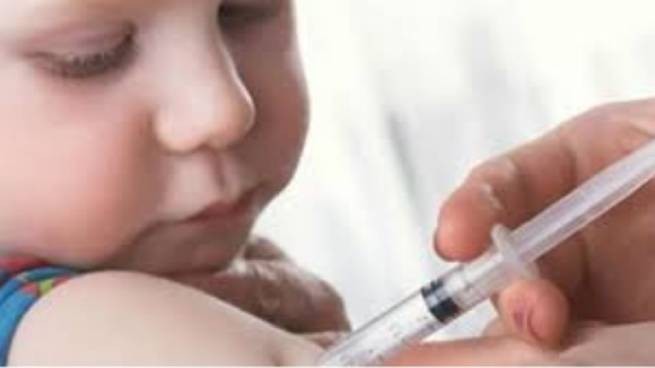Professor Christos Hatzichristodoulou, President of the National Public Health Organization, calls for urgent vaccination coverage of the Roma community and the vaccination of health workers.
He talks about outbreaks of measles and meningitis in Greece, and notes low vaccination coverage. In the next few days, the professor assures, ΕΟΔΥ, in cooperation with municipalities, will begin visiting Roma settlements with intermediaries in order to begin measles vaccination as soon as possible. It will be carried out by mobile medical units of the COMY organization, in collaboration with local medical centers.
A little about measles and vaccinations
The measles vaccination requires two doses, with the second shot given one month after the first.
The incubation period of the disease is 7–21 days. As a rule, it is 10–12 days from infection until the first signs appear and 14 days from infection until the rash appears. The disease is transmitted:
- by airborne droplets;
- in direct contact with nasal or pharyngeal secretions of patients:
- less often through objects recently contaminated with secretions from the patient’s nasopharynx.
Measles is a highly contagious infectious disease, with rates of secondary infection among infected individuals (eg, unimmunized) reaching 90%. The virus can persist on contaminated surfaces and in the environment (in droplets) for up to 2 hours after the patient leaves. Anyone who has not previously had the disease and has not been vaccinated is susceptible to measles.
About measures ΕΟΔΥ
On February 5, we recall that the President of ΕΟΔΥ announced the creation of a working group that will meet every week to monitor the course of the disease. The group is coordinated by Professor of the Department of Pediatric Infectious Diseases, member of the Εθνικής Επιτροπής Εμβολιασμών (ΕΕΕ) and deputy member of the Board of Directors of ΕΟΔΥ Mrs. Vasiliki Papaevangelou. It also includes Professor and President of EEE Ms. Maria Theodoridou, Chairperson of the Board of the MCO “Υγεία για ‘Όλους” (“Health for All”) Ms. Eleni Sotiropoulou, representatives of the Ministry of Health and ΕΟΔΥ.
The creation of the task force was deemed appropriate as there have been reports of a measles outbreak in Romania, where more than 3,000 cases have been reported, in France, the UK and Austria. The measles outbreak in Greece, says Professor Hatzichristodoulou, again shows an outbreak after 2017-2018, after an increase in European countries – Romania, Great Britain and Austria. However, there is no particular cause for concern, he reassures, noting that the regions marked in red are Macedonia, Thrace and Western Greece.
Vaccination recommendations
The Panhellenic Association of Health Visitors in a speech this week noted regarding vaccination:
“The first dose of the vaccine should be given at 12 months of age, and the second dose at 24-47 months of age, but earlier if 4 weeks have passed since the first. Both doses should be administered after 12 months of age. Children and teenagers who have not received their second dose should catch up as soon as possible. The vaccine is safe and any side effects that may occur are mild and rare. These include local pain at the vaccination site, fever and/or rash (in 5-10%), and may occur approximately 6-10 days after the first dose.”
Opinion of Professor A. Konstantinopoulos
President of the Hellenic Pediatric Society, Professor of Pediatrics and for many years President of the National Vaccination Committee Andreas Konstantopoulos, contacted edition CNN GREECE, talks about the need for measles vaccination. He points out that it is imperative to vaccinate those who have not been vaccinated: both young children and people over 65 years of age who either have not been vaccinated or do not remember whether they were vaccinated or whether they were sick. The biggest public health problem with measles, according to the professor, occurs in Roma, who are either not vaccinated or have only received the first dose, although both doses of vaccination are mandatory. He notes:
“Intensive awareness-raising and, if possible, renewed awareness campaigns are needed.”
Asked whether the outbreak of measles, streptococcus and meningitis signals greater mobility of vaccinations now, Professor Konstantopoulos says vaccinations are being carried out, but he would not say there is any particular increase due to the outbreak of these diseases. The most important thing, he emphasizes, is for parents to be on alert and immediately consult a doctor as soon as they notice a sudden high fever, sore throat or rash in their child, or tension.
As for meningitis, Professor Konstantinopoulos said now is the time to vaccinate all young children with the vaccine against it. Meningitis is highly contagious and primarily affects people between the ages of 15 and 25, and can be found in colleges and universities. The causative agent of meningitis causes symptoms in the patient such as high fever, severe headache and convulsions.
About meningitis
According to ΕΟΔΥ, meningococcus, pneumococcus and Haemophilus influenza type B cause more than 75% of all cases of bacterial meningitis and are responsible for 90% of bacterial meningitis in children.
In adults, pneumococcus predominates, followed by meningococcus and then listeria, a particularly increased incidence of which is observed in the neonatal period and in persons over 50 years of age. Less common bacterial causes, such as staphylococcus, group B streptococcus, enterobacteriaceae, and listeria, cause disease in susceptible populations—neonates and immunocompromised patients.
The period of transmissibility of meningococcus is considered to be the entire period of its detection in saliva and nasopharyngeal secretions, up to 24 hours after the start of effective antimicrobial therapy. Penicillin temporarily suppresses, but does not destroy, microorganisms in the secretions of the nasopharynx. The risk of secondary infection is estimated at 2-4 cases per 1000 members of the close family environment. This risk is 500-1000 times higher than that of the general population.
Meningococcus causes both endemic diseases and epidemics. In Europe and North America, the incidence of meningococcal disease is higher in winter and spring, while in sub-Saharan Africa the peak incidence occurs during the dry season (December–June).







More Stories
The Holy Fire will arrive at Athens airport at 19:00
Be careful: no one is safe from a black widow bite (video)
Study: Women live longer, but also suffer more health problems than men